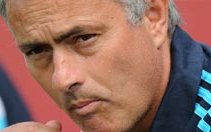Great players don’t necessarily make great managers
Brian Clough is generally considered the best manager the England team never had.
What`s less closely considered is Clough`s career as a striker at Middlesbrough and Sunderland between 1955 and 1964.
During that decade, Clough played 274 games – and scored 251 goals: the highest scoring average in English football history for a player playing at least 10 years.
As it happened, that decade was all she wrote for Brian Clough the player: an ACL injury ended his career early at 29.
But as one door closed for Clough, the door to club management opened.
And it`s as a by turn infuriating, charismatic, outspoken and brilliant manager that history will remember him.
And as the winner of the 1979 European Cup with Nottingham Forest, one of two teams sharing supporters from a small English town with a population of only 300,000. Oh, and the next season, 1980, Cloughie won the European Cup again.
We don`t need psychologists to tell us that the football playing greatness of the Pelés and Sir Bobby Charltons doesn’t necessarily translate to equivalent greatness in the dugout. History has proven it again and again.
Sven-Göran Eriksson was at best a serviceable right-back in Swedish football for nearly a decade before a knee injury forced him to retire at only 27, two years younger than Brian Clough.
After huge success in Italy with top teams like Sampdoria and Lazio, in 2001 Eriksson became the first foreigner to oversee the Three Lions. At a time when the prevailing belief was that the powers that be running English football had ensured that no England national team could achieve anything, Eriksson compiled England`s highest ever winning percentage.
Unlike American sports where 99% of coaches attend university, the qualification football managers have in common is playing the game professionally.
José Mourinho has “unfinished business” too. He came from a football family. Dad, Félix, was a great player who even made an appearance for Portugal. José didn`t have what it took to make it as a player. Long story short, he threw his love of the game and his intellectual energies into coaching. A decision for which every true Chelsea fan is thankful.
I only ever heard Mourinho`s lack of pro-football player ‘chops` referred to once – it was by Spurs manager Martin Jol (who?) before a game against us in 2005. Jol expressed skepticism that “a man who has never controlled a football” at the highest professional level could be a great manager. Maybe losing every game but one in all competitions against Mourinho`s Chelsea during his three year stint in North London went some way to setting the Dutchman straight.
The Chelsea guvnor`s first job in the top-flight was as an interpreter for Bobby Robson. The former England manager hired José when he took the hot-seat at Sporting Lisbon in the summer of 1992. When Sporting didn’t work out for Robson, he moved to Porto and took his interpreter with him.
Interpreter to manager is a unique route to the top in football management. And it makes you think: there`s no doubt that our special one is unique, but there`s more than enough evidence to suggest that professional football is making a huge mistake in basically confining its future management pool to former professional players.
I`ve listened to, read and studied them all: managers, coaches, journalists, ‘gurus`, authors, ex-players, pundits – and by far the smartest footballing brain I know – apart from the my brilliant colleagues at Vital – is my best pal Kevin.
Kevin is a headmaster. So I guess he has deep knowledge of human development and teamwork.
Sven-Göran Eriksson was pursued by blue chip companies (when he wasn`t being pursued by TV star Ulrika Jonsson) anxious to pick his brain for management ideas.
I bet we all have people in our circles who have more to offer football than the succession of talking heads we see on TV; and who would do a far better job than some of the bizarre managers that even top clubs sometimes select.
I`m not saying there`s another José Mourinho amongst us because there isn`t. But I`d love to know if you`ve got a mate like Kevin. Or where – other than in football changing rooms – clubs should be looking for managers-to-be.
By Stan Wenners
Share this article
